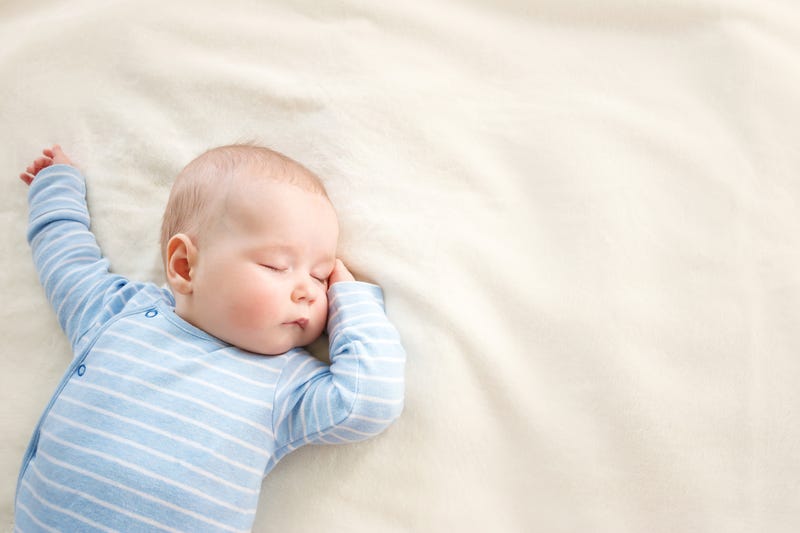
PHILADELPHIA (KYW Newsradio) — A device that helps keep babies sleeping on their backs comfortably has recently received FDA approval, and the hope is that insurance companies will cover it.
The device is called the Snoo Smart Sleeper and it has quite a cult following, as it not only fastens infants to the bassinet, allowing them to stay on their backs while they sleep, but it also soothes and rocks them while playing swishing sounds that mimic the womb. Keeping babies on their backs while they sleep helps prevent Sudden Infant Death Syndrome, also known as SIDS. Nearly 3,500 babies die from sleep-related deaths each year, including SIDS.
“If they are on their stomachs, it increases the risk that they could suffocate when on their backs, which significantly decreases that risk,” said Philadelphia Pediatrician Dr. Elena McDonald.
The Snoo is for babies under six months of age or until they can consistently roll from stomach to back during sleep. The intended goal of it is to allow for some much-needed sound sleep for both the baby and caregiver.
But McDonald says you don't need the Snoo to do that.
“Sometimes if you get a few minutes, get some extra sleep,” she said. That can make all the world of difference, too. However, for the price point – now, that creates a gap right there, it’s not available to everyone.”
The Snoo is priced at around $1,500 dollars. Its inventor, Dr. Harvey Karp, recognizes it may be a bit pricey for some, but it can be rented for $5 a day, and his company has big plans for the device to expand its reach.
“Our goal was everyone in the country gets a free Snoo period full stop,” Karp said. “It will be paid for by corporations first, insurance companies second, and governmental agencies third, including military, for that matter.”
For those who can’t afford or access it, McDonald recommends taking precautionary measures to keep their babies safe.
“Make sure that they're in the safety of their crib or their bassinet appropriately. Make sure that they do not have stuffed animals, pillows, big blankets in there. And that is enough.”
Now that the FDA has approved the bassinet, although not for SIDS prevention, Karp hopes insurance companies will recognize its value, as the device is already being used in more than 150 hospitals across the country.
“Just as infant seats dramatically improve car safety, we hope to dramatically improve sleep safety by keeping babies on the back and reducing risky rolling,” Karp said.


